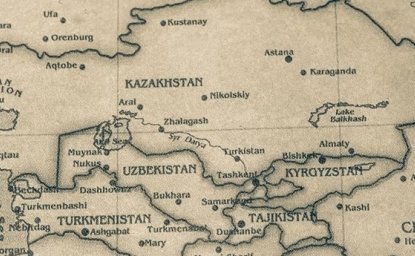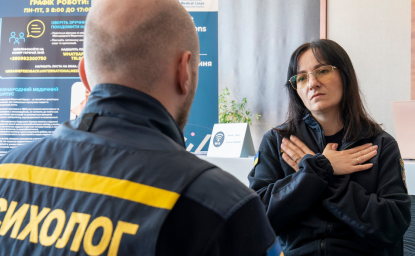Russia Today: Political and Foreign Policy Implications of the Economic Crisis

"The key challenge for Russia today is the complacency and intellectual inability of its elites to understand where the system is moving and what the outcomes of its fundamental flaws are," stated Lilia Shevtsova, Senior Associate, Carnegie Moscow Center, and Associate Fellow, Chatham House, London, at a Kennan Institute noon discussion on June 1, 2009. "It is unclear whether the present economic crisis in Russia will be a catalyst for change of this mode of behavior," she further argued, "since the intellectual and political establishment in the country understands that the system is a relic of the 19th century, but so far is not ready or able to start thinking of change."
Speaking about the role of the economic crisis in Russia today, Shevtsova pointed out that the existing outdated system in the country does not contain any conflict resolution or crisis prevention mechanism. Nonetheless, the ruling elites "decided to do everything to guarantee the system's continuity and preserve the status quo," as they are not "ready to deal with the systemic root causes, but only with indicators and outcomes of the crisis." Russian leadership, according to Shevtsova, has had both amazing success and pathetic failures. The success of "the Argentinean tango," as she characterized the team of Vladimir Putin and Dmitrii Medvedev, has largely been that of "replication of the political regime, balance of forces, and preservation of the previous stability," along with the preservation of the national leader. However, Russian leadership took "disastrous and counterproductive" measures in reaction to the economic crisis by saving outdated industry, propping up an ineffective banking system, and supporting the business community loyal to the Kremlin. These steps inevitably led to the depletion of national reserves as well as to a severe devaluation of the ruble, noted Shevtsova. Finally, the current economic policy of Medvedev, outlined in his "Budget Strategy for 2010-2012," rejects any modernizing steps, thereby "preparing Russia for a longer period of recession," the speaker pointed out.
Likewise, no modernizing changes can be foreseen in the political sector of Russia in the near future. Very clearly, Putin remains "the center of gravity" in the perceptions of Russian political elites, the business class, and regular citizens. According to a survey by the Moscow-based Levada Center, only 12 percent of the population thinks that Medvedev is in charge. Despite Medvedev's new rhetoric on openness and the necessity to fight bureaucracy—which inspires Russian liberals to believe he may become Russia's next Gorbachev—the Argentinean tango, nevertheless, is making only a "two-step dance" in this direction. Having promised to liberalize NGO legislation, for instance, Medvedev appointed Vladislav Surkov, notorious for previously cracking down on Russian NGOs, to oversee this process. Overall, such an asymmetrical presidential-prime ministerial power arrangement "is only a temporary solution for the country," underscored Shevtsova. If the Russian political system is not radically restructured, Russia is likely to return to "a more traditional pattern of power, symbolized and embodied by one man at the top." Yet whether the new leader is to be Medvedev, who is "not ready to get out of Putin's pocket," or Putin himself, who "has become a liability for Russian elites," remains to be seen, observed Shevtsova.
Meanwhile the approval rating of the ruling tandem continues to range between 72 and 75 percent of the Russian population, even though 50 percent of the Levada Center respondents were convinced that Russia is on the wrong track. While 67 percent of respondents believe that Russia needs a democracy, still "the social moods in the country will predominantly depend on one key factor" – the dynamism of the 20 to 25 million person population of Moscow, St. Petersburg, and certain company-cities. This is the group that will determine the future of Russia's stability, posited Shevtsova. Already, there are signs that the economic crisis is taking hold of this segment of the population, where one in every eight Russians is unemployed and one in every three residents is afraid to lose his or her job. Russians have already experienced a dramatic 30 percent drop in personal income. Thus, current social stability looks fragile.
"Has the economic crisis changed the Russian foreign policy paradigm?" asked Shevtsova. In her view, the answer is dichotomous, reflecting the duality of Russia's political class. The country continues to pursue its policy of "to be and not to be" with the West: reliant on its oil exports, Russian society remains isolated from the West while Russian elites use "anti-Western sentiment as a major instrument to consolidate society." Yet there is also an emerging understanding, even within this ruling group, that the country needs to rely on the West to reinvent the global financial system and "reenergize the engine of economic development in the world." However, leaders are not ready to change their foreign policy paradigm based on the image of a "besieged Russia." The metaphor of the "reset button" is perceived by the Russian elite as a renewed privilege to pursue its own geopolitical interests in a bipolar relationship with the U.S. – a recipe for future mutual frustration in the two countries, warned Shevtsova.
Shevtsova identified three possible scenarios for Russia's future. First, if oil prices remain at the level of $60 to $70 per barrel, stagnation, and ultimately decay, is the most likely outcome for Russia. Under a second scenario, "the current system may implode with unpredictable consequences." Lastly, a democratic breakthrough may take place as pressure builds from below and is accompanied by the readiness of political and business elites to consolidate on the basis of structural reform while an extensive stimulus from outside is available. None of these factors for the last scenario, however, is presently in place.
"The Putin-Medvedev period could become crucial for Russia. Even though today the country continues its suicidal statecraft, still this period holds a window of opportunity for modernization. What matters is whether Russia's population and its political elites will find the courage, political will, and means to restructure the Russian system of personalized power before the stagnation and decay become irreversible. We will apparently know this answer sooner than we think," concluded Shevtsova.
Author

Independent Researcher

Kennan Institute
The Kennan Institute is the premier US center for advanced research on Eurasia and the oldest and largest regional program at the Woodrow Wilson International Center for Scholars. The Kennan Institute is committed to improving American understanding of Russia, Ukraine, Central Asia, the South Caucasus, and the surrounding region though research and exchange. Read more




